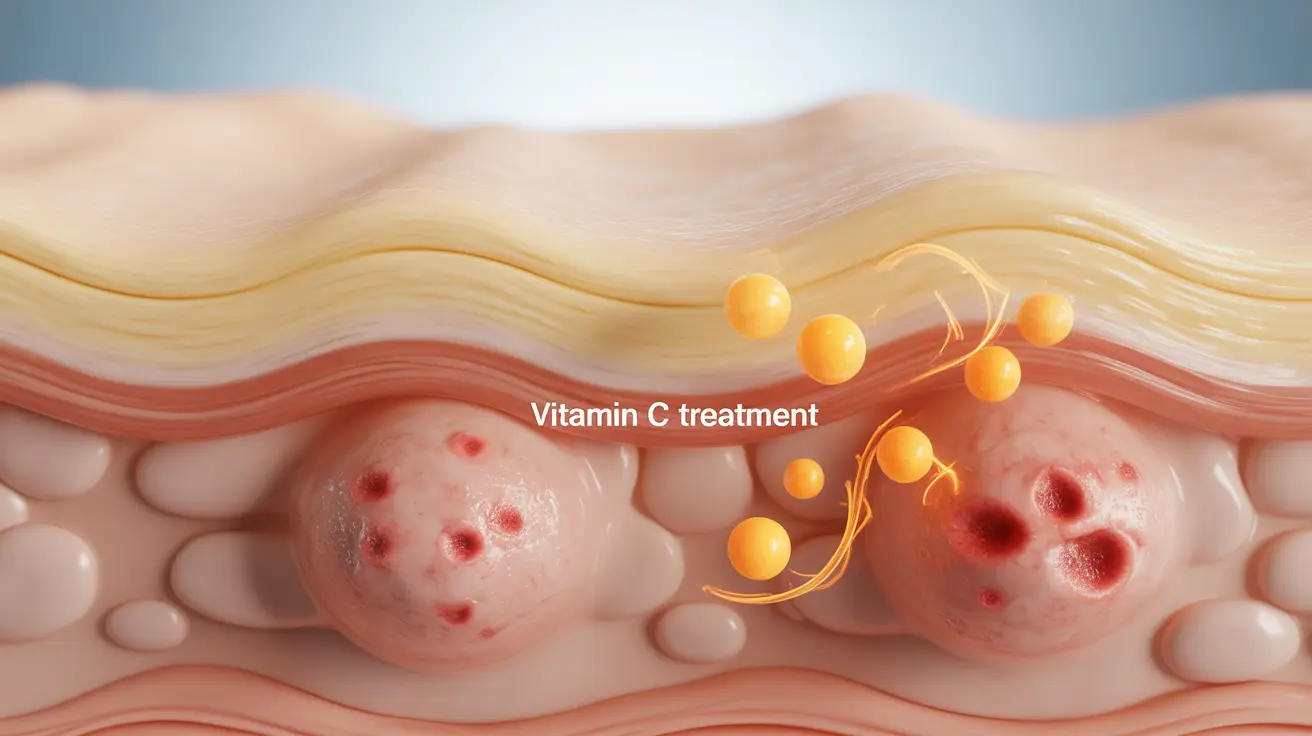For those struggling with acne, vitamin C has emerged as a promising treatment option, both in topical and dietary forms. This powerful antioxidant offers multiple potential benefits for acne-prone skin, from reducing inflammation to helping fade post-acne marks. Let's explore the science behind vitamin C's role in acne treatment and how to effectively incorporate it into your skincare routine.
Understanding Vitamin C's Effects on Acne-Prone Skin
Vitamin C, also known as ascorbic acid, works through several mechanisms to potentially improve acne-prone skin. Its antioxidant properties help protect skin cells from oxidative stress and environmental damage, while its anti-inflammatory effects may help reduce the redness and swelling associated with active breakouts.
Anti-inflammatory Properties
Vitamin C's anti-inflammatory properties can help calm irritated skin and reduce the appearance of active acne lesions. This nutrient works by decreasing the production of pro-inflammatory substances in the skin, potentially leading to less severe breakouts and faster healing.
Collagen Production Support
One of vitamin C's most significant benefits is its ability to boost collagen production. This property is particularly beneficial for those dealing with post-acne scarring, as increased collagen can help improve skin texture and promote healing of acne-related damage.
Using Vitamin C in Your Skincare Routine
Topical Application
When using vitamin C topically for acne-prone skin, it's important to choose the right formulation and concentration. Most experts recommend starting with a lower concentration (around 10%) and gradually increasing as your skin builds tolerance. Look for products containing L-ascorbic acid, the most effective form of vitamin C for skincare.
Dietary Sources and Supplements
Consuming vitamin C through diet or supplements can support overall skin health. Foods rich in vitamin C include citrus fruits, strawberries, bell peppers, and leafy greens. While dietary vitamin C alone may not cure acne, it supports your skin's natural healing processes and immune function.
Best Practices for Using Vitamin C
- Apply vitamin C serum to clean, dry skin
- Use in the morning before sunscreen
- Store products in dark, airtight containers
- Start slowly and monitor your skin's response
- Combine with complementary ingredients like vitamin E and ferulic acid for enhanced stability and effectiveness
Potential Side Effects and Precautions
- Mild irritation or redness
- Oxidation of products (turning yellow or brown)
- Increased sun sensitivity
- Dryness or peeling when first starting use
Frequently Asked Questions
Does vitamin C help reduce acne redness and inflammation?
Yes, vitamin C can help reduce acne-related redness and inflammation due to its potent anti-inflammatory properties. It works by inhibiting inflammatory mediators and providing antioxidant protection to skin cells.
Can topical vitamin C improve acne scars and dark spots?
Vitamin C can help improve the appearance of acne scars and post-inflammatory hyperpigmentation by promoting collagen production and inhibiting melanin formation. Regular use may lead to more even skin tone and improved texture.
How should I use vitamin C serum for acne-prone skin in my skincare routine?
Apply vitamin C serum to clean, dry skin in the morning, followed by moisturizer and sunscreen. Start with a lower concentration and use every other day until your skin adjusts, then gradually increase frequency as tolerated.
Does eating vitamin C-rich foods or taking supplements help treat acne?
While dietary vitamin C supports overall skin health and immune function, it may not directly treat acne. However, maintaining adequate vitamin C levels through diet or supplements can support your skin's natural healing processes and general health.
What are the benefits and risks of using vitamin C for acne-prone skin?
Benefits include reduced inflammation, improved healing, and potential scar reduction. Risks are generally minimal but may include temporary irritation, especially when first starting use. Some people might experience increased sensitivity or oxidation of products if not properly stored.




